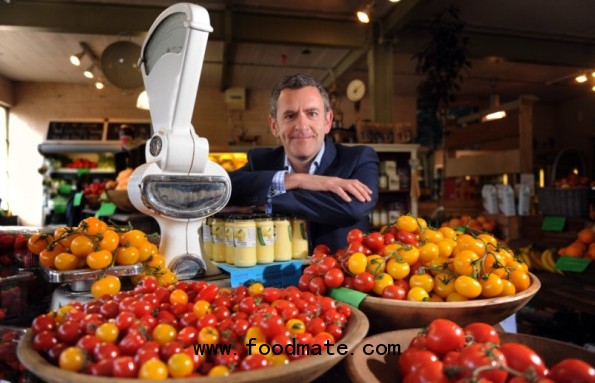
The rain has returned. In 2012 it has never been far away and after a few sweet days of autumn sunshine it is pouring again and flood warnings are in place.
For our farmers, it’s a fitting end to a terrible year. For shoppers, it highlights an interesting question, how much does food really cost?
The buying power of supermarkets distorts the marketplace so much, few of us have any idea what the price of a loaf of bread or a lamb chop should actually be. As a percentage we spend much less of the household budget on food than we did 50 years ago. Critics of factory farming claim food nowadays is too cheap and we should all be prepared to pay more for quality produce. Thanks to the second worst summer on record, they are about to get their way.
Heavy rain in July and August left crops rotting in the fields. Wheat yields are at their lowest levels in 30 years, down 14 per cent on last year. Nothing has escaped the deluge. The UK apple crop is down 27 per cent on last year but grapes have fared even worse.
A couple of weeks ago I had a delicious glass of award-winning Nyetimber English sparkling wine at the Galvins’ new Pompadour Restaurant in Edinburgh. There will be no 2012 vintage. All production this year has been scrapped because winemakers said they couldn’t deliver the quality or volume of previous years. Put simply, the grapes got too much rain and not enough sunshine.
We can’t even look to other countries for sympathy. The US has had its worst drought in 50 years, destroying 45 per cent of the staple corn crop, and in Russia a heatwave has cut the wheat harvest by a third.
We are going to see a global shortage of wheat and increased competition for supplies will push the price up impacting on a number of things.
With 50 per cent worldwide being used to feed animals, wheat has a crucial role to play in our overall agricultural ecosystem. If the price of wheat goes up, the price of red meat and poultry won’t be far behind.
Poorest shoppers will suffer most with their consumption of meat, bread and baked goods falling as prices rise. The result will be further economic and health inequalities.
Supermarkets take lots of criticism, but the keen competition is the only thing keeping prices under control at the moment. That won’t last forever.
The Scotsman this week reported that wet summers may be the pattern for some time to come. If that is the case we may have to adjust our attitudes and priorities and get used to spending more on food and less on other things. We will also have to end our love affair with wasteful three-for-two offers and buffets offering all you can eat for £10.
Our food landscape could look very different in just a few short years and all thanks to the weather.





